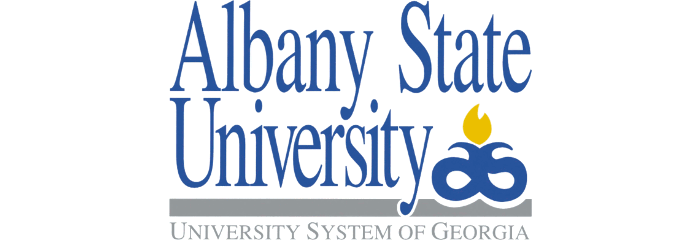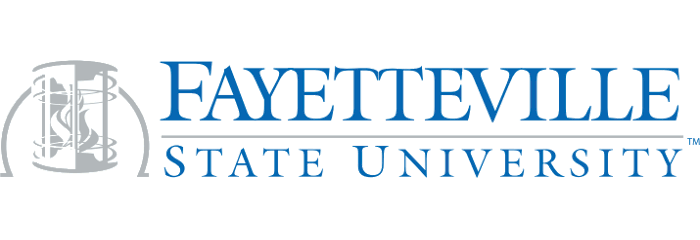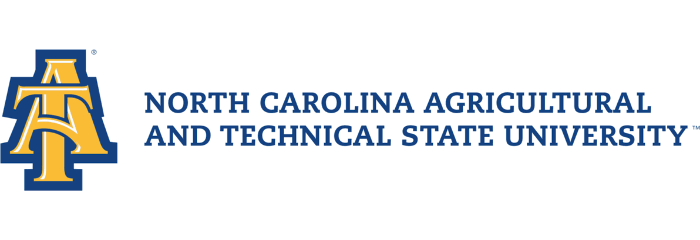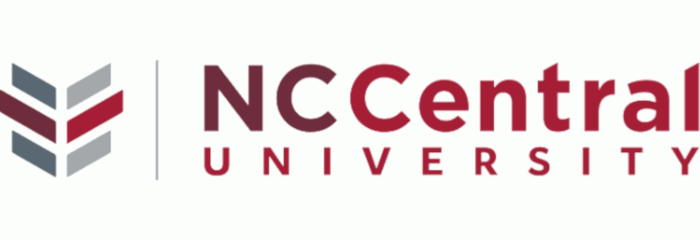2025 Best HBCUs With Online Programs
ON THIS PAGE
HBCU Definition History Importance AdmissionHBCU meaning can vary from student to student, yet the importance of these prestigious institutions cannot be overstated. The fact is, historically Black colleges and universities (HBCUs) are a source of accomplishment and pride for many in the United States, and especially those with African American heritage.
HBCUs offer smaller student-to-teacher class ratios, various STEM programs, and research opportunities. Black students who attend an HBCU are more likely to get a higher paying position after graduation than non-HBCU students. HBCU graduates with the highest starting salaries majored in Finance and Financial Management Services, Chemical Engineering, and Economics.
Below, explore our comprehensive list of the best HBCUs, which includes all HBCUs with students enrolled in distance education, as indicated by the U.S. Department of Education. We also include descriptions of each college based on this government data.
List of HBCU Accredited UUֱ��s
2025 Best HBCUs With Online Programs
- Online Enrollment: 2,093 enrolled
- Annual Tuition: $15,136
- Location: Albany (GA)
(ASU) is a 4-year, public institution located in Albany, Georgia, with a medium-sized student population. ASU has a 28% graduation rate, and the average cost of tuition is $13,520 per year. ASU offers associate, baccalaureate, masters, and specialist degrees. Some of the programs offered include addiction counseling, medical coding, social work, and nursing.
ASU facilitates in-person and distance learning programs, with over 60 online programs available to prospective students. Student resources include tutoring, a writing center, counseling, an information technology division, and learning centers. The acceptance rate at ASU is 73%, so it's important to submit all admission requirements: an application, official transcripts, immunization records, and a FAFSA application.
- Online Enrollment: 3,490 enrolled
- Annual Tuition: $17,262
- Location: Fayetteville (NC)
(FSU) is a medium-sized, public, four-year institution based in Fayetteville, North Carolina. The university has a graduation rate of 45%, and the average annual cost of tuition is $6,969. FSU has over 800 faculty and offers over 60 degrees to choose from. In addition, the university is accredited by the National Council for Accreditation of Teacher Education (NCATE), and it's the #1 HBCU for producing teachers in North Carolina.
At FSU, prospective students may take in-person or distance learning programs, like accounting, computer science, psychology, and mathematics. Student support at FSU covers academic advising, career services, veterans services, and technological assistance. FSU’s general admission requirements are an application and official transcripts. The school's acceptance rate is 79%.
- Online Enrollment: 1,211 enrolled
- Annual Tuition: N/A
- Location: Gadsden (AL)
(Gadsden State) is a 2-year, medium-sized, public institution founded in Gadsden, Alabama. This community college has a graduation rate of 22%, with an annual tuition of $4,538. Gadsden State boasts a 15:1 student-to-teacher ratio, and they also claim that they are 39% more affordable than the national average among public universities.
Gadsden State offers in-person, online, and hybrid degree programs. Students can access tutoring, TRiO programs, a bookstore, an IT helpdesk, disability services, and veterans services. The general admission requirements for GSCC — which has a 100% acceptance rate — are an application and official transcripts.
- Online Enrollment: 1,169 enrolled
- Annual Tuition: $16,439
- Location: Grambling (LA)
(Grambling) is a 4-year, medium-sized, public institution in Grambling, Louisiana. Grambling's graduation rate is 42%, and the average tuition cost is $16,964 per year. Grambling is the #1 producer of African American computer science graduates in the U.S., but they offer a host of other programs in specialties like the biological sciences, family and consumer sciences, history, and political science.
At Grambling, prospective students can choose between in-person or online learning. Students can access counseling, student services, career services, and a bookstore. Grambling has a 93% acceptance rate, and the general admission requirements include an application, ACT/SAT scores, official transcripts, and proof of immunizations.
- Online Enrollment: 3,195 enrolled
- Annual Tuition: $9,795
- Location: Jackson (MS)
(JSU) is a four-year, medium-sized, public institution in Jackson, Mississippi. The graduation rate at JSU is 45%, with an estimated annual cost of tuition around $18,152 per year. With a 90% acceptance rate for students, the chances of getting into JSU are pretty high. JSUMS’s general admission requirements are an application, official transcripts, and test scores.
JSU offers both in-person and distance learning programs, including 47 undergraduate programs, 50 graduate programs, and 19 online programs. In terms of online offerings through , the school has five bachelor's degrees, 11 master's degrees, and three specialist programs. These programs are facilitated through the learning management system, Canvas.
- Online Enrollment: 1,796 enrolled
- Annual Tuition: $20,903
- Location: Greensboro (NC)
(NC A&T) is a 4-year, medium-sized, public institution in Greensboro, North Carolina. As the largest HBCU in North Carolina, NC A&T has a 50% graduation rate, and the average annual tuition costs $10,563. The land grant doctoral research university boasts a national reputation in STEM education. In addition, NC A&T is considered the #1 public HBCU in the nation.
At NC A&T, in-person and online learning — through — are available to prospective students at the bachelor’s and master’s levels. Students can access career services, a library, a bookstore, counseling, and a student center. The general admission requirements include an application, official transcripts, and a high school diploma or GED, but it's important to keep in mind that the acceptance rate is only 57%.
- Online Enrollment: 1,812 enrolled
- Annual Tuition: $20,788
- Location: Durham (NC)
(NCCU) is a 4-year, public institution in Durham, North Carolina, and it has a medium-sized student population. The institution’s graduation rate is 47%, with an average tuition of $14,332 per year. The campus holds two research institutes and collaborates with the Research Triangle Park industries. In addition, NCCU has a Division 1 sports program — which is the highest level of college athletics in the U.S. — and teams that have won the Mid-Eastern Athletic Conference championship.
At NCCU, prospective students can choose between in-person and virtual learning through the learning management system, Blackboard. Student support includes tutoring, library services, counseling, career services, and a veterans center. NCCU’s general admission requirements include an application, official transcripts, and test scores; the school's acceptance rate is 87%.
- Online Enrollment: 1,804 enrolled
- Annual Tuition: N/A
- Location: Tuscaloosa (AL)
(Shelton State) is a 2-year, medium-sized, public institution located in Tuscaloosa, Alabama. On average, the annual tuition at Shelton State is $8,010. The institution has over 7,000 students enrolled in associate degree programs. Students have the option of taking in-person and/or virtual classes, and Shelton State has a range of programs, such as anthropology, business, religion, speech communication, and Spanish — to name a few options. Additionally, Shelton State offers career, disability, tutoring, and advising services.
The community college has a graduation rate of 15%, but they also have a 100% acceptance policy. Shelton State's general admission requirements are an application and official transcripts.
- Online Enrollment: 6,112 enrolled
- Annual Tuition: N/A
- Location: San Antonio (TX)
(SPC) is a public, two-year institution with a medium-sized student population in San Antonio, Texas. This community college has an average graduation rate of 16%, with the average annual cost estimated at $6,829 per year. In addition to offering associate degrees, prospective students can pursue certificates, continuing education units, and pre-major educational plans. Enrollment is available all year-round in each quarter, and SPC has a 100% acceptance rate.
SPC offers in-person, virtual, and hybrid learning options. In addition, remote students can access a child development center, writing center, bookstore, and library. SPC also offers career services and technical support. General admission requirements at SPC include an application, transcripts, and supporting documents based on a student's chosen major.
- Online Enrollment: 1,966 enrolled
- Annual Tuition: $17,741
- Location: Winston-Salem (NC)
(WSSU) is a 4-year, medium-sized, public institution in Winston-Salem, North Carolina. The university’s graduation rate is 61%, and the school has an average annual tuition of $12,415. WSSU is one of the top ten HBCUs in the United States and one of the top ten military-friendly small public schools. Spread over 117 acres, WSSU offers programs like Arts & Entertainment, Communications, Languages & Media, and Business, Leadership & Entrepreneurship.
WSSU offers in-person and — from bachelor's and master's degrees to the doctorate level — to future students. Student resources cover financial services, academic services, a bookstore, career services, and counseling. WSSU, which has a 73% acceptance rate, requires an application and official transcripts for admission.
What Is an HBCU?
As the National Center for Education Statistics () notes, HBCUs are "institutions that were established prior to 1964 with the principal mission of educating Black Americans."
As you study the era in which these schools were envisioned and brought to life, you should know that HBCUs were founded when segregation by race in the United States. By expanding access to higher education to African Americans, HBCUs contributed to the betterment and progress of Black families for decades to come.
How Many HBCUS Are There?
As of 2020, there were 101 HBCUs open in the United States. However, these schools exist in just 19 states, plus Washington D.C. and the Virgin Islands. The also notes that, during the 2019-2020 academic year, HBCUs conferred some 48,200 degrees to graduating students.
The History of HBCUs
The first HBCUs were before the American Civil War. These schools were envisioned as a pathway for Black youth to receive the higher education they were denied at other colleges and universities during times when discrimination was legal and commonplace.
The fact is, anti-literacy laws prevented African Americans from obtaining an education prior to to the end of slavery in 1865. By denying Black people the right to read and learn, slave owners and society were better able to maintain their source of power and control.
According to , free people of color were allowed to attend traditional colleges and universities in states that had abolished slavery during this time, yet they were unsurprisingly plagued by discrimination and racism at every turn. With this in mind, HBCUs were envisioned as a source of Black education without many of the roadblocks students faced as they tried to attend other schools.
That said, the term HBCU did not come about until the passage of the , which expanded funding from the federal government for colleges and universities.
What Was the First HBCU?
became the first HBCU on February 25, 1837. Interestingly, the school was originally founded by a Quaker philanthropist named Richard Humphreys who donated $10,000, or 10% of his estate at the time, to establish an institution of higher education that would prepare people with African heritage for a career in teaching.
While originally named the African Institute, Cheyney University was also referred to as the Institute for Colored Youth until 1913, when it moved to George Cheyney’s farm outside of Philadelphia.
The school went on to become a charter member of the Pennsylvania State System of Higher Education (PASSHE), and it remains the oldest institution of higher education as well as the only HBCU among 14 member schools.
Why Do Historically Black Colleges Exist?
HBCUs may only make up today, but they continue to thrive due to their rich heritage and high standards for excellence.
Millions from diverse backgrounds continue to choose HBCUs due to their high educational standards and inclusive learning environments.
The fact is, these schools provide a place for students of color (and others) to learn and grow without fear of discrimination and racism. It's true that Black students have more options when it comes to higher education since the passage of the , yet millions from diverse backgrounds continue to choose HBCUs due to their high educational standards and inclusive learning environments.
Why Are Historically Black Colleges Important? A Case Study
When you realize the historical relevance of HBCUs, it's hard not to take pride in their rich history and perseverance. HBCUs have become an integral part of the fabric of America since those early days, and the list of historically Black colleges continues to be important today.
The fact is, HBCUs can serve as a refuge for Black students who want to pursue higher education in an environment that makes them feel comfortable and understood.
Expert Contributor

, who is the founder of , had a strong interest in attending an HBCU because she knew she needed a "village feel" to help her transition into adulthood. Growing up in a predominately African American neighborhood in Houston, Texas, Washington says she has always cherished being around her culture.
Ultimately, she decided to attend Huston-Tillotson University in Austin, Texas, and she credits the school environment for not making her feel out of place. This made all the difference, especially for someone at such a transformative age:
“You are connected to your culture and people that look like you without feeling watched or scrutinized," says Washington. "There was this beautiful community experience that I know I would have not experienced anywhere else.”
Washington also recalls teachers that personally called her to ensure she had gas money and was prepared to make the occasional drives back to Houston.
After graduating with the highest honors, Washington found herself striving to build a corporate career. The stark difference between her beloved HBCU community and the corporate space would leave Washington longing to go back to a place where it felt like she belonged.
She says that if she could go back and do it all over again, an HBCU would still be her choice.
“The history and resiliency of HBCUs will always make me beam with pride. They are cornerstones in our communities, and more [people] should understand their greatness.”
HBCU Admission
Like with all other colleges and universities, admission requirements for HBCUs vary widely. For example, applying to attend college typically requires you to meet minimum requirements, such as a minimum GPA and the completion of college entrance exams.
Some HBCUs offer open admission, which means most people who apply will be accepted to the school. Others have regular admission, which means only students who meet minimum academic standards will be allowed to attend.
Ultimately, admission requirements should be a major consideration as you pick a college or university. Other factors to consider include the size of each school, which you can learn by comparing the largest HBCUs by enrollment.
You can also research which HBCU majors have the highest average starting salaries. Our college guide for Black students and guide for underrepresented students can even help you pinpoint exactly what you're looking for in prospective schools, whether that means finding schools with ethnically diverse populations or exploring the best financial aid options.
Do You Have To Be Black To Attend an HBCU?
When many people first learn of HBCUs, they tend to have one important question right off the bat: Can white people attend HBCUs?
The answer to this question is that, yes, white people and individuals of any race or ethnicity are welcome to attend historically Black colleges and universities. In fact, the reports that non-Black students made up 24% of all enrolled students at HBCUs as of 2020.
Bottom Line
If you're comparing schools and wondering if an HBCU could work for your needs, you should know that many of these schools offer an exceptional return-on-value for Black students. You should also know that many HBCUs have a robust online presence, meaning they offer various hybrid and fully online degree programs. Many online degree programs offered by HBCUs are also affordable, especially when you factor in financial aid opportunities you may be eligible for.
What does HBCU stand for? Based on the feedback we've received from current and past students, these schools stand for pride and excellence in every way. As you read over our list of historically Black colleges, it shouldn't take long for you to find a school that offers the degree program and learning environment you crave.
Student Reviews of Online Programs
I was a single mother with no job so I decided to get my medical specialties degree, I have successfully completed the program with honors and three quarters from obtaining my bachelors.
The school helped me with three certifications and just the joy of being an Alumni is the best feeling of accomplishing my education. I'm now also employed as a health care provider in my home town. I'm glad College America gave me the opportunity to get an education. Go to College America before you decide to go... Read More
Review Date: 6/25/2012
Would Recommend: Yes
Helpful for Career: Yes
I went for Pharmacy Technician and i LOVED the program. It was challanging especially since it was a field i knew absolutely nothing about but ut was very easy to learn, especially with the help of student services.
Review Date: 4/4/2012
Would Recommend: Yes
Helpful for Career: Yes
Maintained a 3.8 average for an entire class, uploaded final project. Next semester looking through the prior pages noticed a 71(barely passing). Upon further investigation the final project was still sitting in the que. Never uploaded completely. Possibly due to Internet glitch. Contacted school that could see the problem, and that the project was done on time and turned in. I received to email that could have notified me of this. Several phone conversations and tried to appeal, but they don't care.... Read More
Review Date: 1/4/2024
Would Recommend: No
Helpful for Career: No
This online culinary certificate program is incredibly hard to grasp. I feel as though I was learning culinary on YouTube. Reaching out takes at least a day to get any help you have a week to complete your modules and I feel bad for anybody who has not taken culinary before because really really difficult to get this done. The expectation that this takes 15 to 20 hours a week is not correct.
Review Date: 11/15/2022
Would Recommend: No
Helpful for Career: No
Ashworth College is affordable, accessible, accredited, fully online and the staff is helpful. The school has a good selection of programs at the high school, career and college level. The online student portal is easy to navigate and very simple. The online student community is a great feature of the school to stay connected with fellow students and staff. There is an honor society, and all government agencies accept the degrees, including law enforcement, the military and so on. I experienced a... Read More
Review Date: 7/3/2024
Would Recommend: Yes
Helpful for Career: No
WARNING DO NOT GO HERE: Sanford School of Education. All except one professor were helpful and supportive to a point. "credential support" will not support you.They throw up roadblock after roadblock (they say they're nonprofit) setting candidates up for failure by making it impossible for interns to take and pass TPAs in the time allotted. They wait until the last 4 months of the program to start TPA seminar. You are then expected to submit (to the state) and pass them both by the end of the 4 months... Read More
Review Date: 8/27/2023
Would Recommend: No
Helpful for Career: No
This school is amazing. Almost all of my classes I take online are transferrable to a traditional institution. I found the classes so far to be challenging but not overwhelming. I like that I have time to work and have somewhat of a life and it isn't just Schooling. With the exception of one teacher.
Review Date: 7/10/2019
Would Recommend: Yes
Helpful for Career: No
My experience at Ashworth is going great! At first, it took me a little while to get started as I working on multiple academic programs. I personally believe my undergraduate certificate will be a priceless asset for me in conjunction with my other credentials. As others mentioned, the work is understandable but dedicated study is a must! Post completion of the program, I am looking forwarding to receiving my undergraduate certificate in the mail. Thank you Lord for allowing me get through this process!... Read More
Review Date: 1/13/2018
Would Recommend: Yes
Helpful for Career: Yes
My graduate program is online which makes it easier for me to work and get my education at the same time. I have constant access to my professors and they always respond to emails in a timely manner. The work is challenging and makes me think which i value. The school has many resources available to help such as advisors helping with any course questions I may have and newsletters telling me the latest events. My graduate program is preparing me for my next chapter in life and for that I love UMUC... Read More
Review Date: 10/2/2014
Would Recommend: Yes
Helpful for Career: No
Messiah College has a very good counseling graduate program.
Review Date: 3/28/2015
Would Recommend: Yes
Helpful for Career: No
MSU has been amazing to work with. Since I am doing my program entirely online, I have yet to visit the campus. So far, the staff and online resources have been incredibly helpful and I am continually ecstatic about the program I have chosen.
Review Date: 10/28/2015
Would Recommend: Yes
Helpful for Career: No
I could not have made a better choice for graduate school. Walden University has exceeded my expectations. Faculty members and student support are always available. I have learned an enormous amount already, and am just finishing my second class. The maters of nursing program is dedicated to positive social change, and is teaching me different ways to practice those changes daily. This University receives 10/10 stars! (Some rating sections were left blank, as this program is online) I would recommend... Read More
Review Date: 11/4/2014
Would Recommend: Yes
Helpful for Career: No
I did not know it has not meet the accrediation for my counseling program
Review Date: 2/19/2013
Would Recommend: Yes
Helpful for Career: No
This program is extremely flexible as it is all online. Students are able to take on a fair amount of course work while balancing their personal and professional lives. In addition, the faculty members are extremely accessible. Whenever I reach out to the faculty I have a response typically within 24 hours, or sooner if I call. Beyond that, one of the greatest benefits is being in the University of Michigan system. Not only is that valuable listed on a resume, but there is access to the University... Read More
Review Date: 12/10/2015
Would Recommend: Yes
Helpful for Career: No
In comparison to the University of California at Berkeley where I did my undergraduate studies, the program is equal to if not superior.
Review Date: 3/13/2013
Would Recommend: Yes
Helpful for Career: No
Competitive, rigorous, and relevant program for those who want to become highly effective teachers in the classroom.
Review Date: 9/29/2014
Would Recommend: Yes
Helpful for Career: No
Great program if you are self-motivated and can teach yourself! The observation and student teaching experiences were easily the best part of the program. Student mentor was very supportive, and the course mentors were also very helpful. The program was challenging, but great. I was well-prepared for the state certification exam (Texas), and got my certification right on schedule. Best part? Got my first teaching job the next fall!!! Thank you WGU!!!!
Review Date: 7/22/2018
Would Recommend: Yes
Helpful for Career: Yes
The online program for Social Work is very convenient for students like myself who are busy with a full-time job and single mom. I have always wanted to go back to school for my graduate degree, however it was difficult to balance work and family and attend school on campus. Now that there is an online program, I can attend class in the convenience of my own home. It takes self-discipline and drive to complete an online program. The staff and faculty are always on hand for questions. The con to taking... Read More
Review Date: 4/17/2015
Would Recommend: Yes
Helpful for Career: No
Pros are the online availability and cost for military family, cons are the global focus is not useful for small private owned businesses and takes time away from more pertinent information.
Review Date: 9/30/2014
Would Recommend: Yes
Helpful for Career: No
The past two years is been great and I have learned so much. I have just now finished my Associates Degree and looking to starting my bachelor degree. At the age of 60 never though this would be possible but, I was wrong :)
Review Date: 8/18/2014
Would Recommend: Yes
Helpful for Career: No














